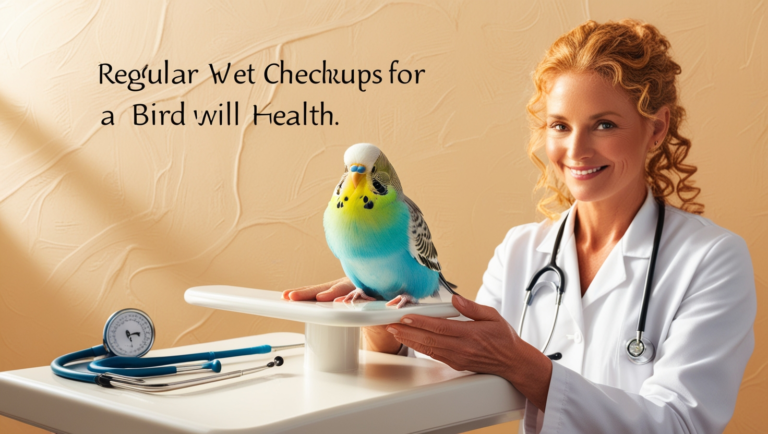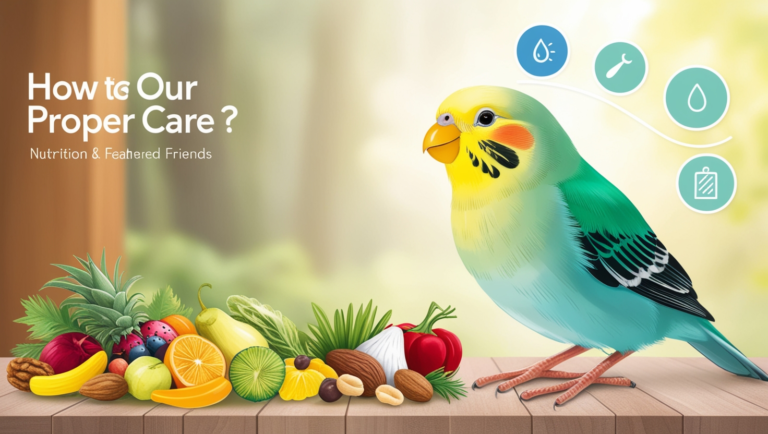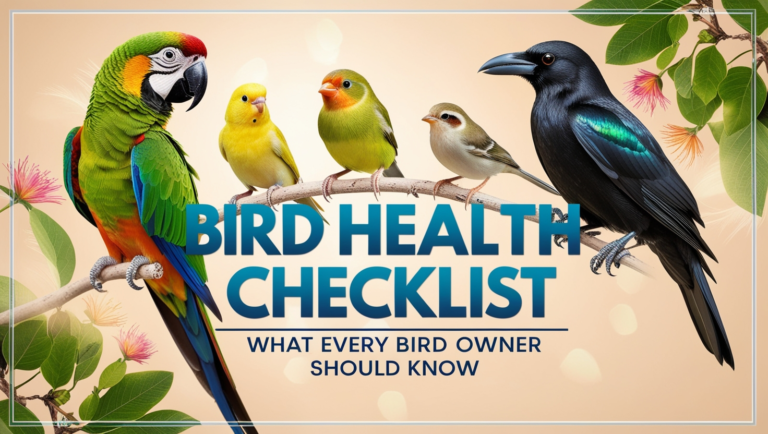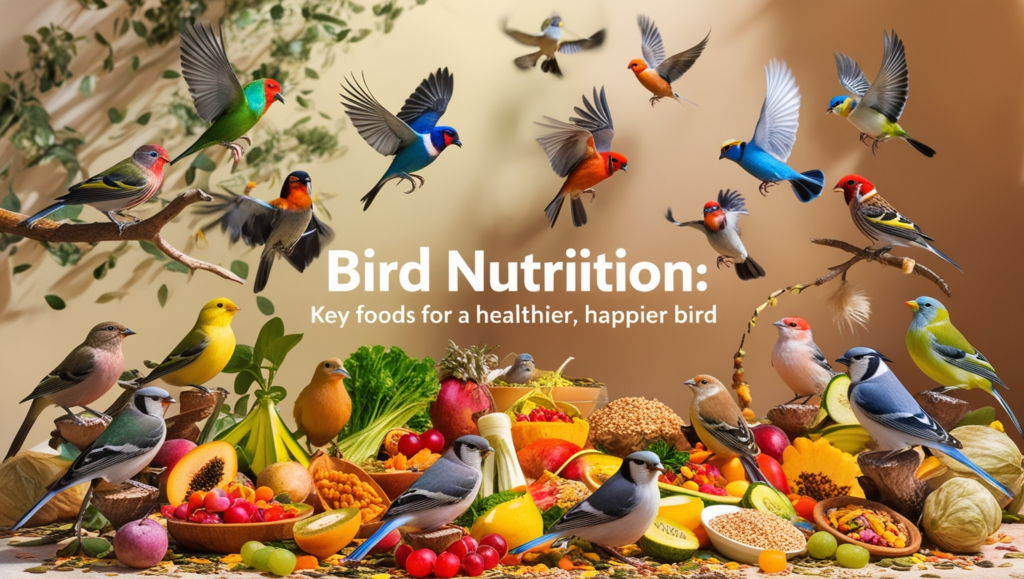
Maintaining a well-balanced diet is crucial for your bird’s health and happiness. Just like in humans, proper nutrition supports overall well-being, from physical health to mental vitality. Understanding the key foods that should be included in your bird’s diet helps ensure they receive all necessary nutrients for a longer, healthier life.
I. Pellets: The Nutritional Cornerstone

When it comes to maintaining optimal health and well-being for pet birds, pellets often serve as the cornerstone of a balanced diet. Unlike seed-only diets, which can lead to nutritional imbalances and selective eating, pellets are specially formulated to provide a comprehensive range of nutrients that birds need to thrive. This article will delve into why pellets are so important, how to choose the right pellets, and how to incorporate them into your bird’s diet effectively.
Why Pellets Are Essential
1. Balanced Nutrition
Pellets are designed to offer a well-rounded mix of essential nutrients, including vitamins, minerals, proteins, fats, and carbohydrates. This balanced formulation ensures that your bird receives all the necessary nutrients in the right proportions, helping to prevent deficiencies and promote overall health.
- Vitamins and Minerals: Pellets are fortified with a range of vitamins (such as A, D, E, and K) and minerals (including calcium, phosphorus, and magnesium) that support various bodily functions. These nutrients are crucial for healthy feathers, strong bones, and proper metabolic processes.
- Proteins and Fats: The inclusion of quality proteins and fats in pellets supports muscle development, energy levels, and overall vitality. Unlike seeds, which can be high in fat and low in other essential nutrients, pellets provide a balanced mix that helps maintain a healthy weight and energy balance.
2. Reduces Selective Eating
One of the main benefits of pellets is that they prevent selective eating, a common problem with seed-based diets. Birds often pick and choose their favorite seeds, leading to an imbalanced intake of nutrients and potential deficiencies. Pellets are designed to be nutritionally complete, so your bird consumes all necessary nutrients with every bite.
- Complete Diet: Each pellet is formulated to be nutritionally complete, meaning your bird gets a consistent supply of vitamins, minerals, and other nutrients with each meal.
- Avoiding Imbalances: By offering pellets as the primary food source, you help ensure that your bird doesn’t miss out on essential nutrients, which can happen with seed diets that are often lacking in certain vitamins and minerals.
3. Supports Healthy Digestion
Pellets are made with ingredients that support healthy digestion. The balanced nutrient profile and high-quality ingredients can help maintain proper digestive function, reducing the risk of gastrointestinal issues.
- Digestive Health: Many pellets include fiber, which is important for maintaining healthy digestion and preventing problems such as constipation or diarrhea.
- Consistent Quality: The uniform texture and composition of pellets ensure that your bird’s digestive system processes them efficiently, minimizing the risk of digestive disturbances.
Choosing the Right Pellets
Selecting the right pellets for your bird involves considering their species, size, and specific dietary needs. Here are some key factors to keep in mind:
1. Species-Specific Formulas
Different bird species have varying nutritional requirements. Choose pellets that are specifically formulated for your bird’s species, whether it’s a parrot, canary, finch, or cockatiel.
- Species-Specific Nutrition: Look for pellets designed for your bird’s species to ensure that the nutrient levels are appropriate for their size and dietary needs.
- Age and Health Considerations: Some pellets are formulated for specific life stages (e.g., juvenile, adult, or senior) or health conditions (e.g., weight management or feather health). Choose accordingly based on your bird’s age and health status.
2. High-Quality Ingredients
Opt for pellets made with high-quality, natural ingredients. Avoid those with artificial colors, preservatives, or excessive sugars.
- Ingredients List: Check the ingredient list for high-quality protein sources, whole grains, and natural vitamins and minerals. Avoid pellets with added sugars or artificial additives.
- Brand Reputation: Choose pellets from reputable brands known for their commitment to avian health and nutrition.
3. Pellet Size and Shape
Pellets come in various sizes and shapes to accommodate different bird species and sizes. Ensure that the pellets you choose are appropriate for your bird’s beak size and feeding habits.
- Size Matters: Small birds may require smaller pellets, while larger birds need larger pellets to prevent choking and ensure easy consumption.
- Shape and Texture: Some birds may prefer different shapes or textures of pellets. Experiment with various options to find what your bird prefers.
Incorporating Pellets into Your Bird’s Diet
To make the transition to pellets smooth and effective, follow these tips:
1. Gradual Transition
If your bird is accustomed to a seed-based diet, introduce pellets gradually. Mixing pellets with seeds and slowly increasing the pellet proportion over time can help your bird adjust.
- Transition Process: Start by offering a small amount of pellets alongside the seeds, gradually increasing the pellet portion while decreasing the seeds over several weeks.
2. Monitor Acceptance
Observe your bird’s response to the new diet. Some birds may be reluctant to try pellets at first, but persistence and patience can help. Offer pellets consistently and avoid offering seeds as an alternative during the transition period.
- Behavioral Observation: Monitor your bird’s eating habits and overall health during the transition. Ensure they are consuming enough pellets and showing signs of adjustment.
3. Variety and Supplementation
While pellets should be the primary food source, offering occasional fresh fruits, vegetables, and healthy treats can provide additional nutrients and enrichment.
- Balanced Diet: Incorporate a variety of fresh foods to complement the pellets and provide additional nutrients. Ensure that these additions do not replace the pellets but rather enhance the overall diet.
II. Fresh Fruits: Nature’s Treats
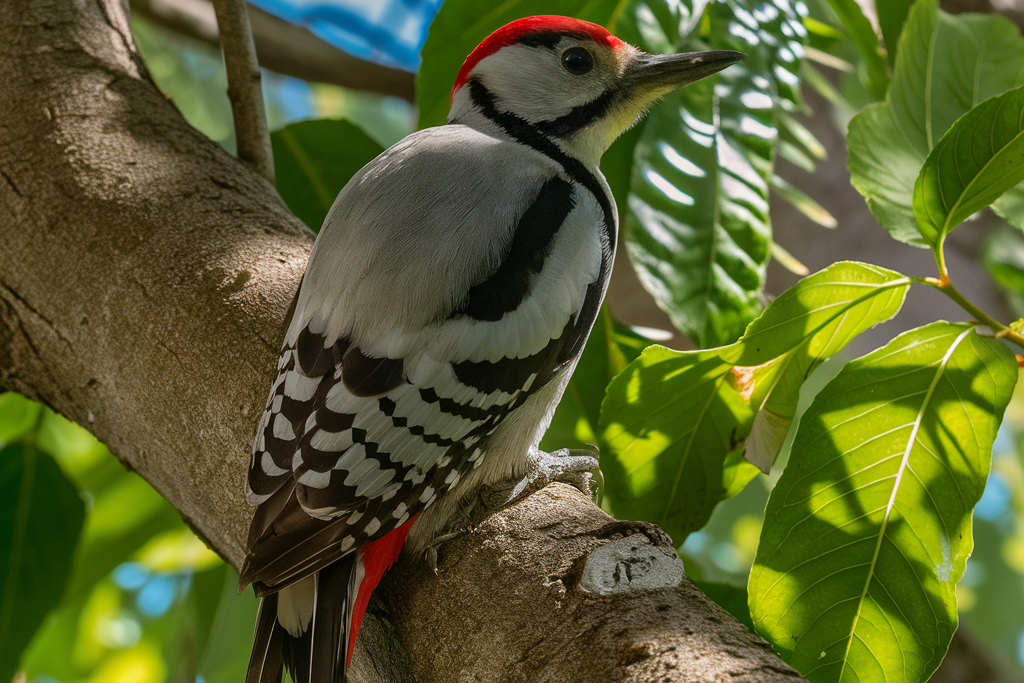
Fresh fruits are a delightful and nutritious addition to your bird’s diet. They not only provide a burst of flavor but also offer a range of essential nutrients that contribute to overall health and well-being. Incorporating fruits into your bird’s diet can enhance their vitality and add variety to their meals. This article explores the benefits of fresh fruits, which types to offer, and tips for incorporating them into your bird’s diet.
The Benefits of Fresh Fruits
1. Rich in Essential Vitamins and Minerals
Fresh fruits are packed with vitamins and minerals that support various bodily functions. They are excellent sources of vitamin A, vitamin C, potassium, and antioxidants.
- Vitamin A: Essential for healthy vision, immune function, and feather health. Fruits like mangoes and apricots are rich in vitamin A.
- Vitamin C: Supports the immune system and helps with wound healing. Fruits like strawberries and oranges provide a good dose of vitamin C.
- Potassium: Important for heart health and muscle function. Bananas and cantaloupes are high in potassium.
- Antioxidants: Help protect cells from damage and support overall health. Berries such as blueberries and raspberries are rich in antioxidants.
2. Natural Hydration
Many fruits have high water content, which helps keep your bird hydrated. Proper hydration is crucial for maintaining healthy digestion and overall bodily functions.
- Hydrating Fruits: Melons (like watermelon and cantaloupe) and oranges have high water content, making them excellent choices for keeping your bird hydrated.
3. Promotes Digestive Health
Fruits are a good source of dietary fiber, which aids in digestion and helps maintain a healthy gut.
- Fiber Content: Apples, pears, and berries provide dietary fiber that supports regular bowel movements and overall digestive health.
4. Low in Calories
Fruits are generally low in calories and can be a healthy alternative to high-fat treats. They provide essential nutrients without contributing to excess weight.
- Healthy Treats: Offering fruits as treats helps maintain a balanced diet without adding unnecessary calories or unhealthy fats.
Recommended Fruits for Birds
1. Apples
Apples are a versatile fruit that most birds enjoy. They are a good source of vitamin C and fiber. Ensure you remove the seeds and core before offering them.
- Preparation: Slice apples into small, manageable pieces and serve them fresh.
2. Bananas
Bananas are rich in potassium and are a soft, easy-to-eat fruit for many birds. They provide quick energy and are generally well-received.
- Preparation: Slice bananas into thin rounds or small chunks.
3. Berries
Berries, such as strawberries, blueberries, raspberries, and blackberries, are packed with antioxidants and vitamin C. They are also small and easy for birds to eat.
- Preparation: Wash berries thoroughly and serve them whole or halved.
4. Grapes
Grapes are hydrating and provide essential vitamins and antioxidants. They should be cut in half to prevent choking hazards, especially for smaller birds.
- Preparation: Wash grapes and cut them into halves or quarters before serving.
5. Melons
Melons like cantaloupe and watermelon are hydrating and provide vitamins A and C. They are a refreshing treat for your bird.
- Preparation: Cut melon into small, bite-sized pieces. Remove any seeds or rinds before serving.
6. Pears
Pears are a good source of dietary fiber and vitamin C. They should be served without seeds and cut into small pieces.
- Preparation: Peel and slice pears into small chunks.
7. Mangoes
Mangoes are rich in vitamins A and C. They are a tropical treat that many birds enjoy.
- Preparation: Peel the mango and cut the flesh into small cubes.
Tips for Incorporating Fruits into Your Bird’s Diet
1. Introduce Fruits Gradually
If your bird is new to fruits, introduce them gradually. Start with small amounts and observe your bird’s response. This helps prevent digestive upset and allows your bird to adjust to new flavors.
- Gradual Introduction: Offer a small piece of fruit alongside their regular food to see how they react.
2. Maintain Variety
Offering a variety of fruits ensures a broad spectrum of nutrients and prevents dietary monotony. Rotate different types of fruits to keep your bird interested and engaged.
- Varied Selection: Include different fruits in your bird’s diet throughout the week to provide a range of nutrients.
3. Avoid Pits and Seeds
Some fruits, such as avocados and certain stone fruits, contain pits or seeds that can be harmful to birds. Always remove seeds, pits, and any parts of the fruit that could pose a choking hazard.
- Safe Preparation: Ensure all fruits are cut into appropriate sizes and free from seeds or pits.
4. Offer Fresh Fruits Daily
Fresh fruits should be offered daily or several times a week to ensure your bird receives a regular intake of essential nutrients. Avoid leaving cut fruit out for too long, as it can spoil quickly.
- Fresh Offerings: Serve fresh fruit in small portions and remove any uneaten fruit promptly to prevent spoilage.
5. Avoid Sugary and Processed Fruits
Do not offer fruits with added sugars, syrups, or those that are processed. Stick to natural, whole fruits to maintain a healthy diet for your bird.
- Natural Choices: Choose fresh, organic fruits whenever possible and avoid any that have been sweetened or processed.
III. Vegetables: Vital for Vitamins and Minerals
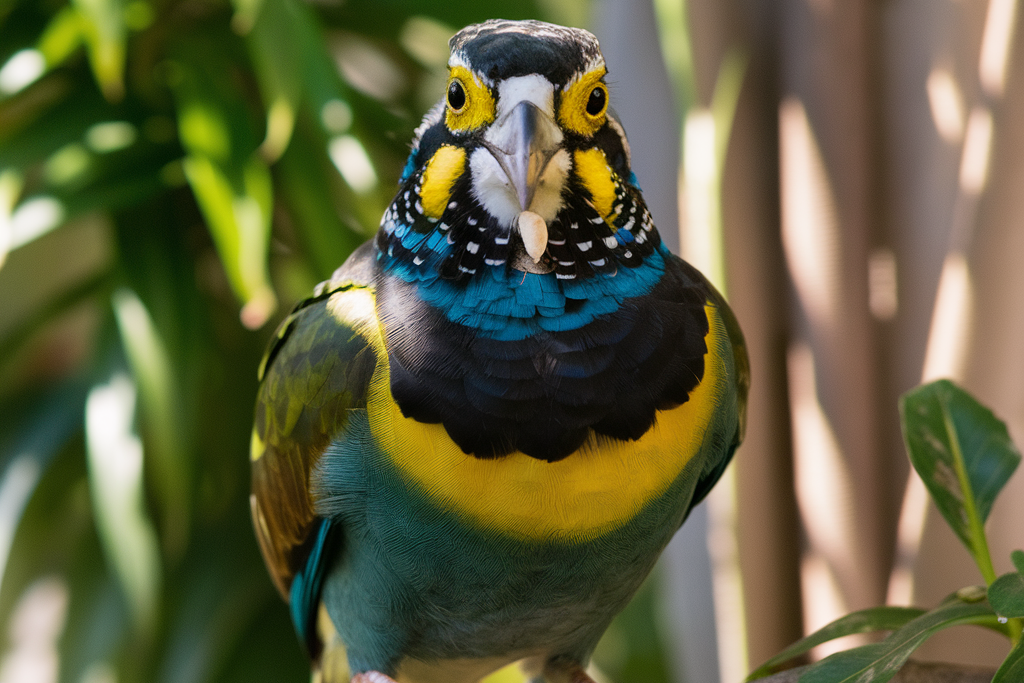
Incorporating vegetables into your bird’s diet is a crucial step towards ensuring their optimal health and well-being. Vegetables are packed with essential vitamins, minerals, and fiber that contribute to overall health and support various bodily functions. This article explores the benefits of vegetables for your bird, highlights some of the best options, and provides tips for incorporating them into your bird’s diet.
The Benefits of Vegetables
1. Rich in Essential Vitamins and Minerals
Vegetables are excellent sources of vitamins and minerals that are vital for your bird’s health. These nutrients support various bodily functions, from immune system health to feather maintenance.
- Vitamin A: Crucial for healthy vision, immune function, and skin. Vegetables like carrots and sweet potatoes are rich in vitamin A.
- Vitamin C: Supports immune function and helps with tissue repair. Bell peppers and kale are high in vitamin C.
- Calcium: Important for bone health and muscle function. Leafy greens such as collard greens and spinach provide good sources of calcium.
- Iron: Essential for oxygen transport and energy. Vegetables like broccoli and peas are good sources of iron.
2. Supports Digestive Health
The fiber content in vegetables helps promote healthy digestion and regular bowel movements. This can prevent digestive issues and contribute to overall gut health.
- Fiber Benefits: Vegetables like squash and zucchini are high in fiber, which helps maintain healthy digestion and prevents constipation.
3. Hydrating Properties
Many vegetables have high water content, which helps keep your bird hydrated. Proper hydration is essential for maintaining overall health and supporting bodily functions.
- Hydrating Vegetables: Cucumbers and celery have high water content, making them excellent choices for hydration.
4. Low in Calories and Fats
Vegetables are naturally low in calories and fats, making them a healthy choice for maintaining a balanced diet and preventing obesity.
- Healthy Choices: Offering vegetables as snacks or meal additions helps keep your bird’s diet balanced without excess calories or unhealthy fats.
Recommended Vegetables for Birds
1. Carrots
Carrots are rich in vitamin A and beta-carotene, which support healthy vision and immune function. They are also a crunchy, enjoyable treat for many birds.
- Preparation: Cut carrots into small, bite-sized pieces or shred them for easier consumption.
2. Bell Peppers
Bell peppers are packed with vitamin C and antioxidants. They come in various colors, providing not only nutrition but also visual stimulation for your bird.
- Preparation: Slice bell peppers into thin strips or small chunks. Remove seeds and stems before serving.
3. Spinach
Spinach is a good source of calcium, iron, and vitamins A and C. It is a nutritious leafy green that many birds enjoy.
- Preparation: Offer fresh spinach leaves, washed and torn into manageable pieces.
4. Broccoli
Broccoli is rich in vitamins A, C, and K, as well as fiber. It is a versatile vegetable that provides many health benefits.
- Preparation: Serve broccoli florets steamed or raw, cut into small pieces.
5. Sweet Potatoes
Sweet potatoes are high in vitamins A and C, as well as dietary fiber. They are a nutritious, sweet option that can be offered cooked or raw.
- Preparation: Cook and mash sweet potatoes or cut them into small chunks. Avoid adding any seasoning or fats.
6. Peas
Peas are a good source of vitamins A and C, as well as protein and fiber. They are small and easy for birds to eat.
- Preparation: Serve peas cooked and thawed from frozen or fresh, cut into small pieces.
7. Cucumbers
Cucumbers are hydrating and low in calories. They are a refreshing treat that can help keep your bird hydrated.
- Preparation: Slice cucumbers into thin rounds or small chunks. Remove seeds if necessary.
Tips for Incorporating Vegetables into Your Bird’s Diet
1. Introduce Vegetables Gradually
If your bird is new to vegetables, introduce them gradually to avoid digestive upset. Start with small amounts and observe how your bird reacts.
- Gradual Introduction: Mix small pieces of vegetables with your bird’s regular food and increase the portion over time.
2. Maintain Variety
Offering a variety of vegetables ensures a broad spectrum of nutrients and prevents dietary monotony. Rotate different types of vegetables to keep your bird interested.
- Varied Selection: Include a range of vegetables in your bird’s diet throughout the week.
3. Ensure Proper Preparation
Prepare vegetables properly to make them safe and appealing for your bird. Remove seeds, stems, and any potentially harmful parts.
- Safe Preparation: Wash vegetables thoroughly, cut them into appropriate sizes, and avoid using any seasoning or cooking oils.
4. Offer Fresh Vegetables Daily
Vegetables should be offered regularly, ideally as part of your bird’s daily meals. Ensure that any uneaten vegetables are removed promptly to prevent spoilage.
- Fresh Offerings: Serve fresh vegetables in small portions and discard any leftovers after a few hours.
5. Avoid Harmful Vegetables
Some vegetables, such as avocados and those high in oxalates (e.g., rhubarb and spinach), can be harmful to birds. Avoid offering these vegetables and stick to bird-safe options.
- Safe Choices: Choose vegetables known to be safe for birds and avoid those that may pose a risk.
IV. Seeds and Nuts: Nutrient-Dense Treats
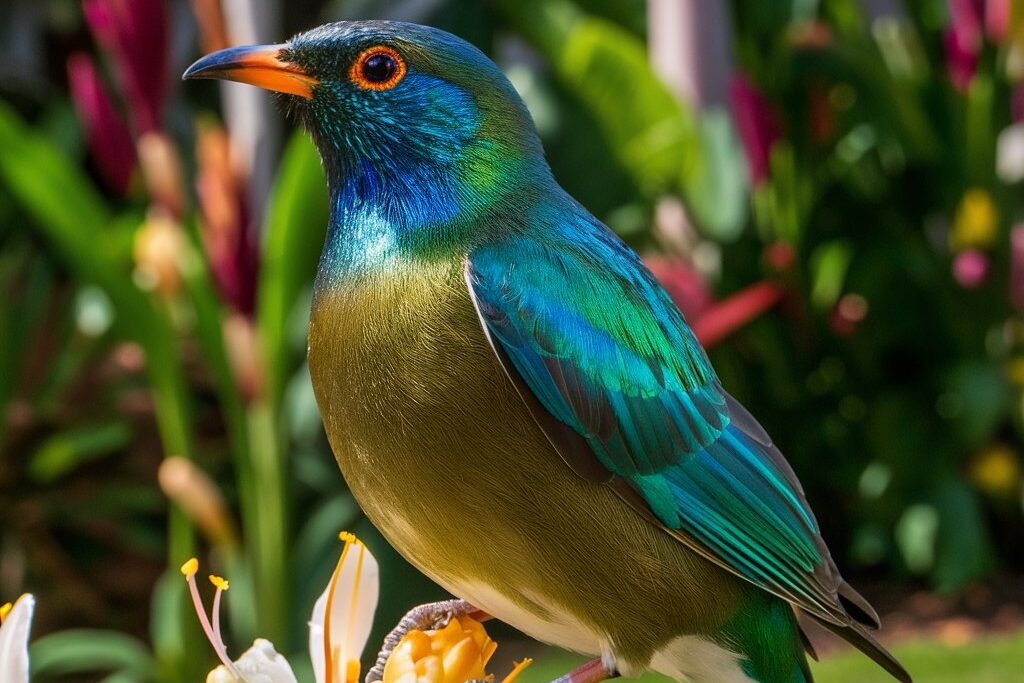
Seeds and nuts are often considered some of the most appealing treats for pet birds, thanks to their rich flavors and crunchiness. However, they are not just tasty; they also offer a variety of nutrients that can benefit your bird’s health when fed in moderation. This article explores the benefits of seeds and nuts, the best options for your bird, and tips for incorporating them into their diet.
The Benefits of Seeds and Nuts
1. Rich in Essential Nutrients
Seeds and nuts are packed with essential nutrients that support various bodily functions and overall health.
- Healthy Fats: Seeds and nuts contain healthy fats, such as omega-3 and omega-6 fatty acids, which support skin health, feather quality, and overall vitality.
- Protein: They are good sources of protein, which is important for muscle development and repair.
- Vitamins and Minerals: Seeds and nuts provide important vitamins and minerals like vitamin E, magnesium, zinc, and selenium.
2. High Energy Content
Due to their fat and protein content, seeds and nuts are energy-dense foods. This makes them a great source of quick energy, especially for active or molting birds.
- Energy Boost: The energy from seeds and nuts can help support your bird’s active lifestyle and promote healthy feather growth.
3. Encourages Natural Foraging Behavior
Offering seeds and nuts encourages natural foraging behaviors, which can help keep your bird mentally stimulated and engaged.
- Foraging Activity: Scatter seeds or place nuts in foraging toys to mimic natural behaviors and provide enrichment.
4. Promotes Healthy Skin and Feathers
The healthy fats and nutrients in seeds and nuts contribute to maintaining healthy skin and a glossy feather coat.
- Feather Quality: Omega fatty acids and vitamin E support skin health and feather quality.
Recommended Seeds and Nuts for Birds
1. Sunflower Seeds
Sunflower seeds are a popular treat among birds, providing healthy fats, protein, and vitamins. They are a good energy source but should be offered in moderation due to their high fat content.
- Preparation: Offer sunflower seeds in their shell or pre-shelled, depending on your bird’s preference.
2. Millet
Millet is a small, nutritious seed that many birds enjoy. It is rich in carbohydrates and provides essential minerals like magnesium and phosphorus.
- Preparation: Offer millet sprays or loose millet as a treat or part of your bird’s diet.
3. Pumpkin Seeds
Pumpkin seeds are a great source of protein, iron, and healthy fats. They are also rich in antioxidants and can support overall health.
- Preparation: Serve pumpkin seeds shelled and unsalted to avoid any added salts or preservatives.
4. Almonds
Almonds are high in healthy fats, protein, and vitamin E. They support skin and feather health and can be a nutritious treat.
- Preparation: Offer almonds unsalted and chopped into smaller pieces if necessary.
5. Walnuts
Walnuts provide omega-3 fatty acids, protein, and antioxidants. They are beneficial for overall health but should be fed in moderation due to their high fat content.
- Preparation: Serve walnuts shelled and cut into small pieces to prevent choking hazards.
6. Pine Nuts
Pine nuts are a good source of protein, healthy fats, and minerals. They are smaller and softer than other nuts, making them easier for smaller birds to eat.
- Preparation: Offer pine nuts shelled and in small quantities.
Tips for Incorporating Seeds and Nuts into Your Bird’s Diet
1. Offer in Moderation
While seeds and nuts are nutrient-dense, they are also high in fat and calories. Offer them as a treat or supplement to a balanced diet, rather than as a primary food source.
- Moderation: Limit the amount of seeds and nuts to prevent excessive calorie intake and ensure a balanced diet.
2. Choose Unsalted and Unseasoned Options
Always choose unsalted and unseasoned seeds and nuts to avoid added salts or artificial flavors that can be harmful to birds.
- Healthy Choices: Opt for raw or lightly toasted nuts and seeds without added salts or sugars.
3. Provide Variety
Offering a variety of seeds and nuts ensures a range of nutrients and helps prevent boredom. Rotate different types to keep your bird interested.
- Varied Diet: Include a mix of seeds and nuts as part of a balanced diet, along with pellets, fruits, and vegetables.
4. Avoid Seeds and Nuts High in Fat
Certain seeds, like those with high oil content (e.g., sunflower seeds), should be offered in limited quantities. Balance these with lower-fat options.
- Balanced Offering: Mix high-fat seeds with lower-fat options to maintain a balanced nutrient profile.
5. Ensure Freshness
Seeds and nuts should be fresh and stored properly to prevent spoilage. Check for any signs of mold or rancidity before offering them to your bird.
- Proper Storage: Store seeds and nuts in an airtight container in a cool, dry place to maintain freshness.
V. Whole Grains: For Fiber and Energy
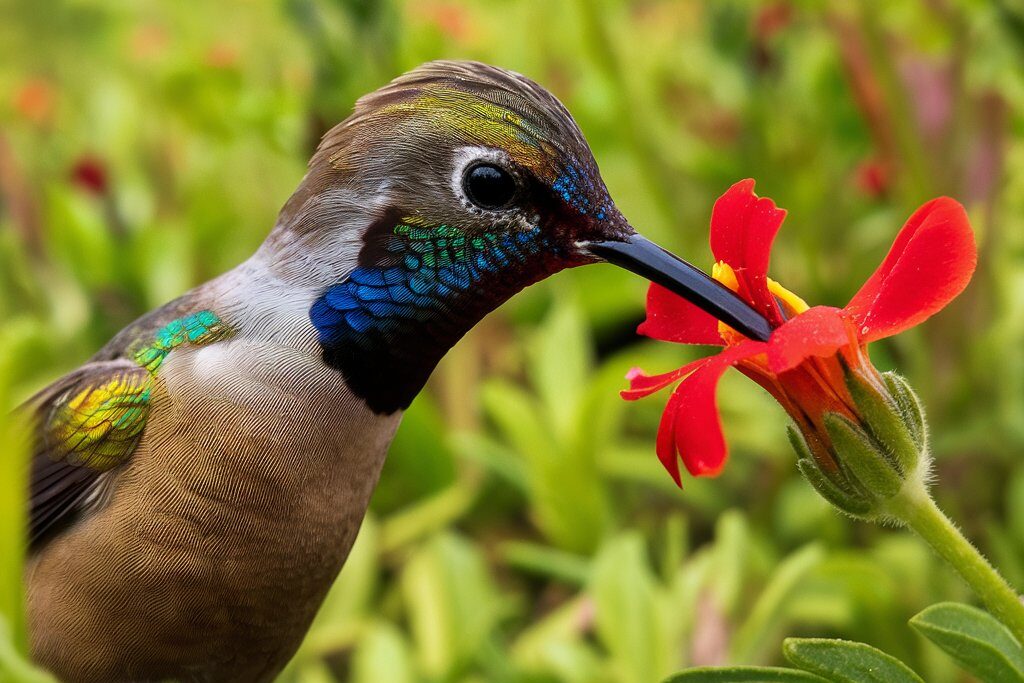
Whole grains are an essential component of a balanced diet for pet birds, offering a rich source of fiber, energy, and a variety of important nutrients. Including whole grains in your bird’s diet can support their overall health, promote good digestion, and provide long-lasting energy. This article explores the benefits of whole grains, highlights some of the best options, and provides tips for incorporating them into your bird’s diet.
The Benefits of Whole Grains
1. Rich in Fiber
Whole grains are an excellent source of dietary fiber, which is crucial for maintaining healthy digestion. Fiber helps prevent constipation, promotes regular bowel movements, and supports overall gut health.
- Digestive Health: The fiber in whole grains aids in the proper functioning of the digestive system and helps to maintain a healthy gut flora.
2. Sustained Energy
Whole grains provide complex carbohydrates, which offer a steady and sustained release of energy. This is important for active birds and supports their overall vitality and activity levels.
- Energy Levels: The slow-digesting carbohydrates in whole grains help maintain stable energy levels throughout the day.
3. Nutrient-Rich
Whole grains are packed with essential nutrients, including vitamins, minerals, and antioxidants that support various aspects of your bird’s health.
- Nutrient Profile: Whole grains contain B vitamins (such as B6 and folate), iron, magnesium, and selenium, which contribute to overall health and wellness.
4. Supports Healthy Weight
Because whole grains are high in fiber and low in fat, they can help in maintaining a healthy weight by keeping your bird feeling full and satisfied longer.
- Weight Management: The fiber content in whole grains helps control appetite and supports a healthy weight.
Recommended Whole Grains for Birds
1. Brown Rice
Brown rice is a whole grain that is rich in fiber, B vitamins, and minerals like magnesium and selenium. It is a versatile grain that can be included in your bird’s diet in various forms.
- Preparation: Cook brown rice thoroughly before offering it to your bird. Avoid adding any seasoning or oils.
2. Oats
Oats are an excellent source of fiber, protein, and essential fatty acids. They are also rich in B vitamins and minerals that support overall health.
- Preparation: Offer plain cooked oats or raw rolled oats. Avoid flavored or sweetened varieties.
3. Quinoa
Quinoa is a high-protein whole grain that also provides a good balance of amino acids, vitamins, and minerals. It is a nutritious addition to your bird’s diet.
- Preparation: Cook quinoa according to package instructions and let it cool before offering it to your bird.
4. Barley
Barley is a fiber-rich whole grain that offers a variety of vitamins and minerals, including B vitamins and iron. It is a hearty grain that can be a great addition to your bird’s diet.
- Preparation: Cook barley thoroughly and serve it in small, manageable portions.
5. Millet
Millet is a small, nutritious whole grain that is easy for birds to eat. It is high in fiber and provides essential nutrients like magnesium and phosphorus.
- Preparation: Offer millet seeds as part of a varied diet or as a treat.
Tips for Incorporating Whole Grains into Your Bird’s Diet
1. Introduce Gradually
If your bird is new to whole grains, introduce them gradually to prevent any digestive upset. Start with small amounts and observe how your bird reacts.
- Gradual Introduction: Mix small quantities of whole grains with your bird’s regular food and increase the portion over time.
2. Offer a Variety
Providing a variety of whole grains ensures a broad spectrum of nutrients and prevents dietary monotony. Rotate different grains to keep your bird’s diet interesting and balanced.
- Varied Diet: Include different types of whole grains in your bird’s diet to provide diverse nutrients and flavors.
3. Cooked vs. Raw
Some whole grains are best served cooked, while others can be offered raw. Ensure that grains are prepared properly to make them safe and digestible for your bird.
- Proper Preparation: Cook grains like brown rice and barley thoroughly, and offer grains like oats and millet in their raw form if preferred.
4. Avoid Additives
When preparing whole grains, avoid adding any seasonings, salts, or oils that could be harmful to your bird. Keep the grains plain and natural.
- Simple Preparation: Offer whole grains without any added ingredients to maintain their nutritional integrity.
5. Monitor for Freshness
Ensure that the whole grains you offer are fresh and free from mold or spoilage. Store grains in an airtight container in a cool, dry place.
- Storage Tips: Keep whole grains in a sealed container and check for any signs of mold or rancidity before feeding them to your bird.
VI. Sprouts: Nutrient Powerhouses
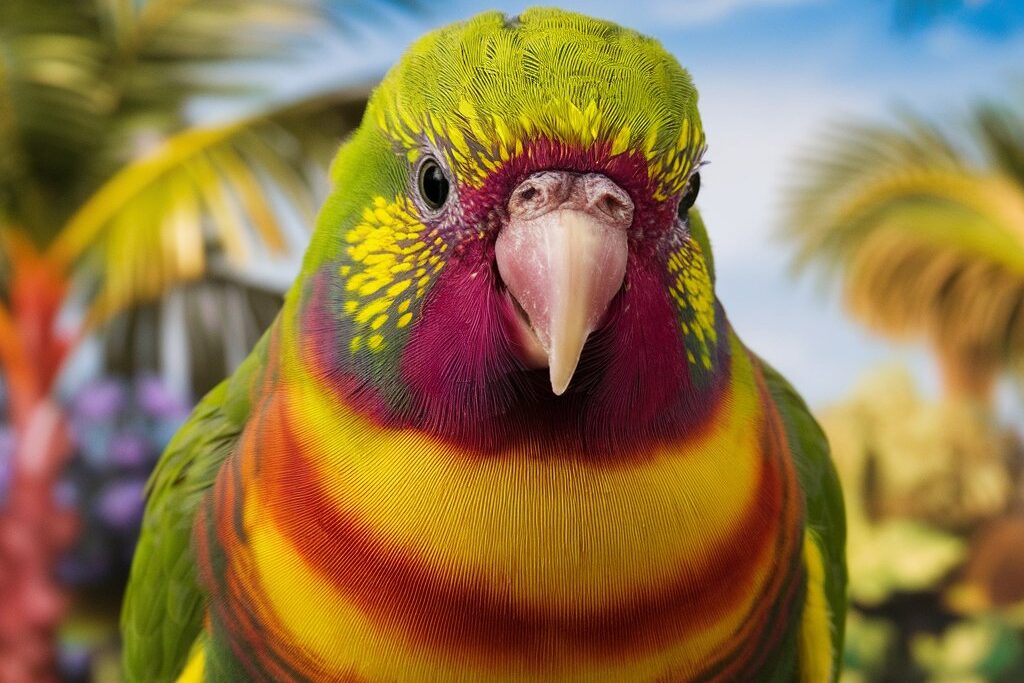
Sprouts are a fantastic addition to your bird’s diet, offering a wealth of nutrients and health benefits. These tiny, germinated seeds pack a powerful punch of vitamins, minerals, and enzymes that can enhance your bird’s overall well-being. This article explores the benefits of sprouts, highlights some of the best options, and provides tips for incorporating them into your bird’s diet.
The Benefits of Sprouts
1. Nutrient Density
Sprouts are incredibly nutrient-dense. During the sprouting process, seeds undergo a transformation that increases their nutritional content, making them richer in vitamins and minerals compared to their non-sprouted counterparts.
- Enhanced Nutrition: Sprouts provide a high concentration of vitamins such as A, C, E, and K, as well as essential minerals like calcium, magnesium, and iron.
2. Rich in Enzymes
The sprouting process activates enzymes that aid in digestion and nutrient absorption. These enzymes help break down complex carbohydrates and proteins, making the nutrients in sprouts more bioavailable to your bird.
- Digestive Support: Enzymes in sprouts can improve digestion and enhance the absorption of nutrients.
3. Increased Protein Content
Sprouts generally contain more protein than their non-sprouted seeds. This additional protein can support muscle development and overall health.
- Protein Boost: The protein content in sprouts supports your bird’s muscle growth and repair.
4. High in Antioxidants
Many sprouts are rich in antioxidants, which help combat free radicals and reduce oxidative stress. This can support your bird’s immune system and overall health.
- Antioxidant Protection: Antioxidants in sprouts contribute to a strong immune system and help protect cells from damage.
5. Supports Healthy Weight
Sprouts are low in calories and high in fiber, which can help your bird maintain a healthy weight by promoting satiety and preventing overeating.
- Weight Management: The fiber content in sprouts helps your bird feel full and satisfied, supporting healthy weight maintenance.
Recommended Sprouts for Birds
1. Alfalfa Sprouts
Alfalfa sprouts are mild-tasting and packed with vitamins A, C, and K. They also provide calcium and other essential nutrients that support overall health.
- Preparation: Rinse alfalfa sprouts thoroughly and offer them fresh to your bird.
2. Broccoli Sprouts
Broccoli sprouts are known for their high levels of vitamin C, antioxidants, and sulforaphane, which has been shown to support detoxification and overall health.
- Preparation: Offer broccoli sprouts fresh and raw. They are crunchy and flavorful, making them a great addition to your bird’s diet.
3. Radish Sprouts
Radish sprouts are rich in vitamins A, C, and E, as well as minerals like potassium and calcium. They have a slightly spicy flavor that many birds enjoy.
- Preparation: Rinse radish sprouts thoroughly before serving them to your bird.
4. Mung Bean Sprouts
Mung bean sprouts are a good source of protein, vitamins, and minerals. They are easy to digest and offer a mild flavor that is appealing to many birds.
- Preparation: Soak mung beans overnight, then sprout them for a few days before offering them to your bird.
5. Sunflower Sprouts
Sunflower sprouts are rich in healthy fats, protein, and vitamins. They have a nutty flavor and crunchy texture that many birds find appealing.
- Preparation: Grow sunflower sprouts from soaked seeds and offer them fresh.
Tips for Incorporating Sprouts into Your Bird’s Diet
1. Introduce Gradually
If your bird is new to sprouts, introduce them gradually to avoid any digestive upset. Start with small amounts and monitor your bird’s response.
- Gradual Introduction: Mix a small amount of sprouts with your bird’s regular food and gradually increase the portion.
2. Ensure Freshness
Always offer fresh sprouts to your bird. Avoid feeding them any sprouts that appear slimy, moldy, or otherwise spoiled.
- Freshness Check: Inspect sprouts for any signs of mold or spoilage before feeding them to your bird.
3. Rinse Thoroughly
Rinse sprouts thoroughly before offering them to remove any residual bacteria or contaminants. This helps ensure the sprouts are safe and clean.
- Proper Rinsing: Use clean, fresh water to rinse sprouts thoroughly before serving.
4. Provide Variety
Offering a variety of sprouts can ensure a broad range of nutrients and keep your bird’s diet interesting. Rotate different types of sprouts to provide diverse benefits.
- Varied Diet: Include different types of sprouts in your bird’s diet to provide a wide range of nutrients.
5. Monitor Portions
While sprouts are nutritious, they should be offered as part of a balanced diet. Ensure that they are given in appropriate portions to avoid overfeeding.
- Portion Control: Offer sprouts in moderation alongside other foods to maintain a balanced diet.
VI. Calcium Sources: Essential for Bone Health
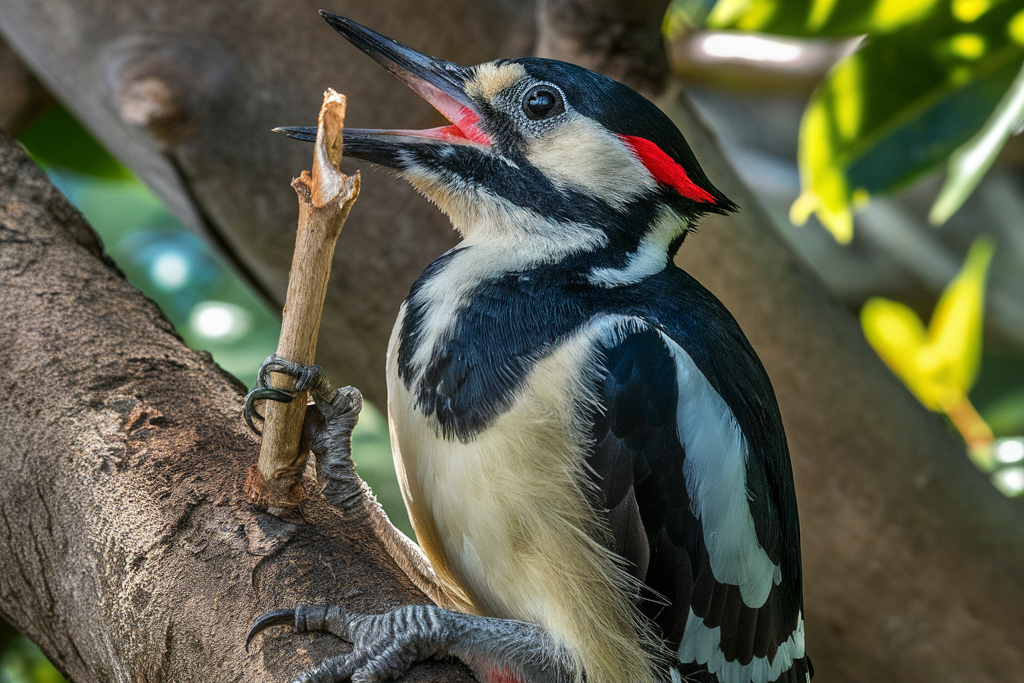
Calcium is a crucial nutrient for birds, playing a vital role in maintaining strong bones, proper muscle function, and overall health. Adequate calcium intake is essential for preventing bone disorders and ensuring your bird’s long-term well-being. This article explores the importance of calcium, highlights key dietary sources, and offers tips for ensuring your bird receives the right amount of this essential mineral.
The Importance of Calcium for Birds
1. Strong Bones and Beak
Calcium is fundamental for the development and maintenance of strong bones and a healthy beak. Inadequate calcium levels can lead to conditions such as osteoporosis, which results in weakened bones and increased risk of fractures.
- Bone Health: Calcium supports the formation of bone tissue and helps maintain bone density, reducing the risk of bone-related issues.
2. Muscle Function and Nerve Transmission
Calcium plays a key role in muscle contraction and nerve function. It helps regulate muscle movements and ensures proper communication between nerves and muscles.
- Muscle and Nerve Health: Sufficient calcium levels contribute to smooth muscle function and effective nerve signaling.
3. Eggshell Formation
For breeding birds, calcium is essential for the production of strong eggshells. Inadequate calcium can lead to thin or weak eggshells, which can result in poor hatching rates or egg-related issues.
- Reproductive Health: Adequate calcium ensures healthy eggshell formation and supports successful reproduction.
4. Blood Clotting
Calcium is also involved in the blood clotting process. It helps in the formation of blood clots, which is crucial for wound healing and preventing excessive bleeding.
- Blood Health: Proper calcium levels support effective blood clotting and overall blood health.
Key Dietary Sources of Calcium
1. Leafy Greens
Leafy greens such as kale, collard greens, and spinach are excellent sources of calcium. They are also rich in other essential vitamins and minerals that support overall health.
- Recommended Greens: Offer a variety of leafy greens to ensure a good calcium intake. Wash and chop them into manageable pieces before serving.
2. Fortified Pellets
Many commercial bird pellets are fortified with calcium and other essential nutrients. These pellets are designed to provide a balanced diet and support overall health.
- Pellet Selection: Choose high-quality, calcium-fortified pellets as a primary food source for your bird.
3. Calcium-Rich Seeds and Nuts
Certain seeds and nuts, such as sesame seeds and almonds, are good sources of calcium. However, they should be offered in moderation due to their high fat content.
- Seed and Nut Options: Offer small amounts of calcium-rich seeds and nuts as treats or supplements to your bird’s regular diet.
4. Cuttlefish Bone
Cuttlefish bone is a natural source of calcium that is often provided as a chewable supplement for birds. It helps birds maintain beak health and provides a consistent calcium source.
- Cuttlefish Bone: Provide a cuttlefish bone in your bird’s cage for them to peck at and obtain additional calcium.
5. Calcium Supplements
In some cases, calcium supplements may be necessary to ensure your bird receives adequate calcium. Supplements come in various forms, including powders and liquid drops.
- Supplement Use: Consult with an avian veterinarian before introducing supplements to determine the appropriate dosage and type for your bird.
Tips for Ensuring Adequate Calcium Intake
1. Balanced Diet
Ensure that your bird’s diet includes a variety of calcium-rich foods to provide a well-rounded intake of this essential mineral. A balanced diet is key to meeting all of your bird’s nutritional needs.
- Varied Diet: Combine leafy greens, fortified pellets, and other calcium sources to create a comprehensive feeding plan.
2. Monitor Calcium Levels
Regularly monitor your bird’s health and calcium intake. Watch for signs of calcium deficiency, such as weakened bones, poor feather condition, or reproductive issues.
- Health Monitoring: Observe your bird’s behavior and physical condition to identify any potential calcium deficiencies early.
3. Avoid Excessive Phosphorus
Phosphorus can interfere with calcium absorption if consumed in excess. Ensure that your bird’s diet is balanced and does not contain excessive amounts of phosphorus-rich foods.
- Phosphorus Balance: Maintain a proper balance of calcium and phosphorus in your bird’s diet to support optimal health.
4. Consult with an Avian Veterinarian
If you have concerns about your bird’s calcium intake or overall health, consult with an avian veterinarian. They can provide guidance on dietary adjustments and recommend appropriate supplements if needed.
- Veterinary Advice: Seek professional advice to ensure your bird receives the right amount of calcium and other nutrients.
VIII. Hydration: The Foundation of Health
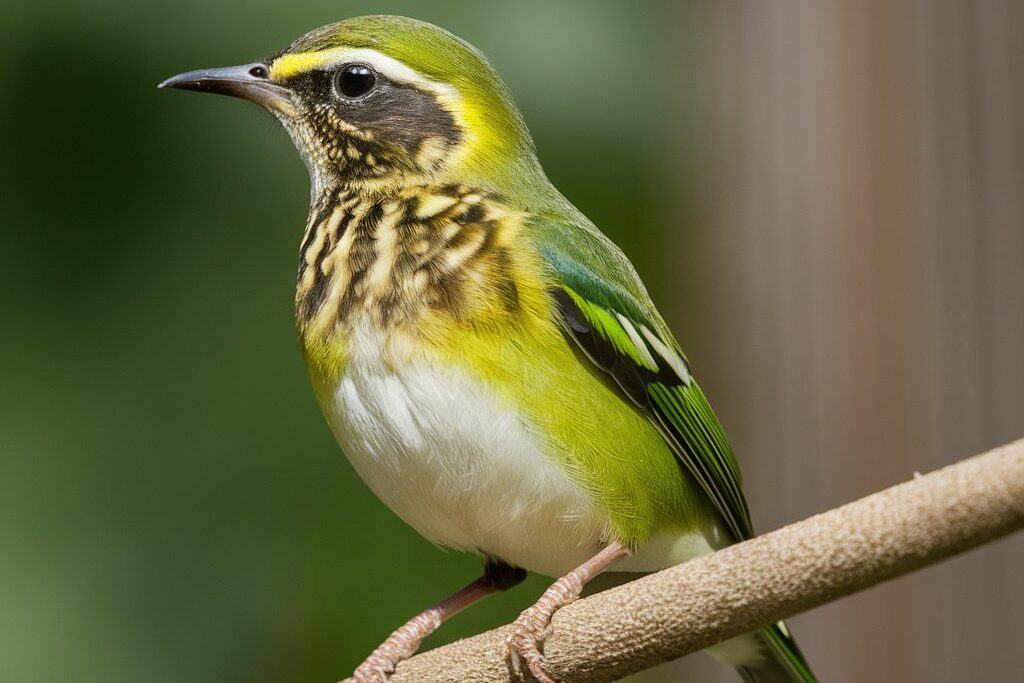
Proper hydration is crucial for maintaining the overall health and well-being of your pet bird. Water is not just a basic necessity but a fundamental element that supports a range of vital bodily functions. This article delves into the importance of hydration, its impact on bird health, and practical tips for ensuring your bird stays well-hydrated.
The Importance of Hydration
1. Regulates Body Temperature
Water helps regulate your bird’s body temperature by facilitating thermoregulation. Birds rely on water to maintain a stable internal temperature, especially during temperature fluctuations.
- Temperature Control: Adequate hydration helps your bird manage its body temperature and stay comfortable.
2. Supports Digestive Health
Water plays a crucial role in digestion. It aids in the breakdown of food, absorption of nutrients, and elimination of waste. Proper hydration supports smooth digestion and helps prevent issues such as constipation.
- Digestive Function: Ensures that your bird’s digestive system operates efficiently and helps in the smooth processing of food.
3. Enhances Nutrient Absorption
Hydration is essential for the absorption of nutrients from food. Water helps dissolve nutrients and allows them to be transported to cells throughout the body.
- Nutrient Transport: Facilitates the delivery of essential vitamins, minerals, and other nutrients to various bodily functions.
4. Supports Kidney Function
The kidneys play a key role in filtering waste products from the bloodstream and maintaining fluid balance. Adequate water intake supports kidney function and helps prevent issues such as kidney stones and urinary tract infections.
- Kidney Health: Promotes effective waste elimination and overall kidney function.
5. Maintains Healthy Skin and Feathers
Proper hydration helps keep your bird’s skin and feathers in good condition. Dehydration can lead to dry, flaky skin and dull, brittle feathers.
- Skin and Feather Health: Ensures that your bird’s skin remains supple and feathers stay healthy and vibrant.
Tips for Ensuring Proper Hydration
1. Provide Fresh Water Daily
Always provide fresh, clean water for your bird. Change the water daily to ensure it remains free from contaminants and bacteria.
- Daily Refresh: Replace the water in your bird’s cage with fresh water each day to promote good hygiene.
2. Use a Clean Water Container
Ensure that your bird’s water container is cleaned regularly to prevent the growth of mold and bacteria. Use a non-toxic, bird-safe container.
- Container Hygiene: Clean the water container with mild soap and water, and rinse thoroughly before refilling.
3. Monitor Water Intake
Keep an eye on your bird’s water consumption. If you notice a significant increase or decrease in water intake, it could indicate a health issue that needs attention.
- Consumption Tracking: Observe your bird’s drinking habits and consult a veterinarian if there are any noticeable changes.
4. Avoid Adding Sugary or Artificial Substances
Do not add sugary or artificially flavored substances to your bird’s water. These additives can harm your bird’s health and disrupt proper hydration.
- Pure Water: Offer only pure, clean water without any additives or flavorings.
5. Ensure Proper Hydration During Hot Weather
During hot weather or if your bird is exposed to high temperatures, ensure that they have access to extra water to stay hydrated. You may need to provide additional water sources or increase the frequency of water changes.
- Hot Weather Care: Monitor your bird closely during hot periods and ensure they have ample access to fresh water.
6. Offer Water-Rich Foods
In addition to providing fresh water, you can supplement your bird’s hydration with water-rich foods such as fruits and vegetables. These foods contribute to overall fluid intake.
- Hydrating Foods: Offer fruits like watermelon and vegetables like cucumber, which have high water content and can help with hydration.
7. Observe for Signs of Dehydration
Be aware of signs of dehydration, such as lethargy, sunken eyes, dry mouth, and decreased skin elasticity. If you notice these symptoms, take action to rehydrate your bird and consult a veterinarian if necessary.
- Dehydration Signs: Watch for symptoms of dehydration and address them promptly to prevent serious health issues.
IX. Avoid Toxic Foods: Safety First
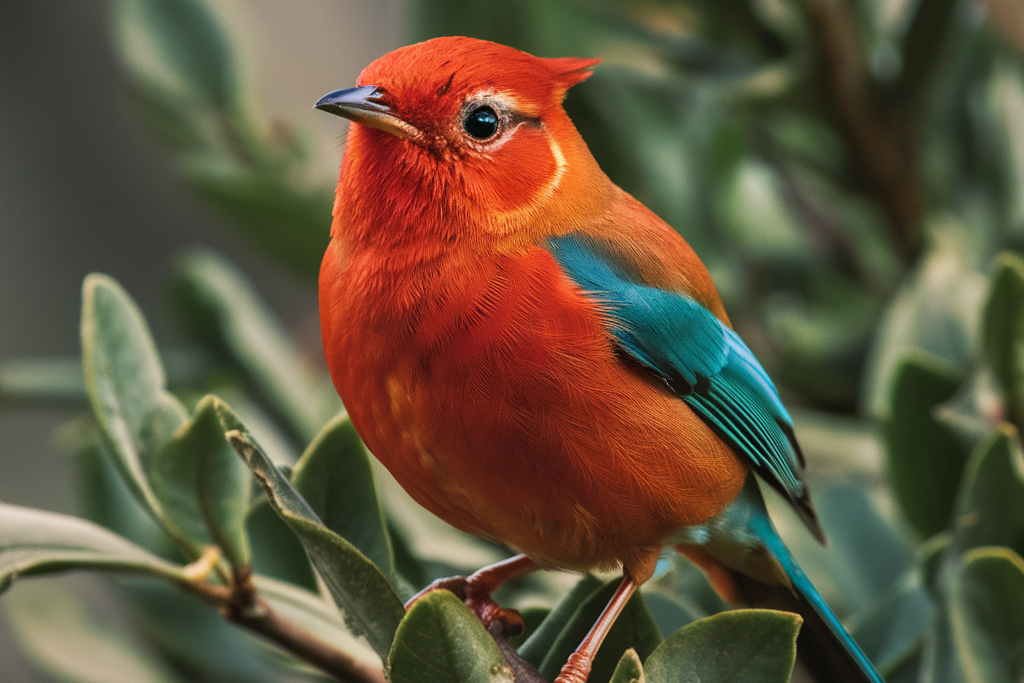
Ensuring your pet bird’s safety involves more than just providing a balanced diet; it also means avoiding foods that can be harmful or toxic to them. Birds have unique dietary needs, and certain foods that are safe for humans or other pets can pose serious health risks to avian companions. This article highlights common toxic foods to avoid, the potential risks they pose, and how to keep your bird’s diet both nutritious and safe.
Common Toxic Foods for Birds
1. Avocado
Avocado contains a substance called persin, which is toxic to many bird species. Persin can cause severe health issues, including respiratory distress, fluid accumulation, and even death.
- Toxicity: Avoid feeding avocados or foods containing avocado to your bird.
2. Chocolate
Chocolate contains theobromine and caffeine, both of which are highly toxic to birds. Ingesting chocolate can lead to symptoms such as vomiting, diarrhea, tremors, and seizures.
- Toxicity: Keep chocolate and chocolate-containing products away from your bird’s diet.
3. Caffeine
Caffeinated beverages like coffee, tea, and energy drinks are harmful to birds. Caffeine can cause heart palpitations, restlessness, and potentially lead to severe health issues.
- Toxicity: Avoid offering any caffeinated drinks or foods to your bird.
4. Alcohol
Alcohol is extremely dangerous for birds. Even small amounts can cause intoxication, liver damage, and severe neurological issues.
- Toxicity: Never provide alcohol or alcohol-containing products to your bird.
5. Salt
High levels of salt can be harmful to birds, leading to dehydration, kidney problems, and high blood pressure. Foods like salted snacks and processed foods are particularly risky.
- Toxicity: Limit or avoid offering salty foods and monitor salt intake.
6. Onions and Garlic
Onions and garlic contain compounds that can be toxic to birds, leading to gastrointestinal upset, anemia, and other serious health issues.
- Toxicity: Avoid feeding onions, garlic, and related foods to your bird.
7. Fruit Pits and Seeds
Certain fruit pits and seeds, such as those from apples, cherries, and peaches, contain cyanogenic compounds that can be toxic to birds.
- Toxicity: Remove pits and seeds from fruits before offering them to your bird.
8. Xylitol
Xylitol is a sugar substitute found in many sugar-free products, including gum and candy. It can cause a rapid drop in blood sugar levels and liver failure in birds.
- Toxicity: Keep xylitol-containing products away from your bird.
9. Rhubarb
Rhubarb contains oxalic acid, which can be toxic to birds and lead to kidney damage and other health problems.
- Toxicity: Avoid offering rhubarb or foods containing rhubarb to your bird.
10. Raw Beans
Raw beans contain hemagglutinins, which are toxins that can cause severe digestive issues and poisoning in birds.
- Toxicity: Do not feed raw beans or legumes to your bird. Ensure beans are cooked thoroughly if you include them in their diet.
Tips for Safe Feeding Practices
1. Research Bird-Friendly Foods
Before introducing new foods to your bird’s diet, research whether they are safe and suitable. Consult avian nutrition guides or a veterinarian to confirm the safety of specific foods.
- Food Research: Verify the safety of new foods and seek expert advice if needed.
2. Offer Fresh, Whole Foods
Focus on providing fresh, whole foods that are known to be safe and nutritious for birds. Include a variety of fruits, vegetables, and high-quality pellets in their diet.
- Safe Foods: Offer a range of bird-safe fruits, vegetables, and fortified pellets.
3. Avoid Processed and Human Foods
Minimize or avoid processed and human foods, which may contain harmful additives, excessive salt, or other toxic substances.
- Avoid Processed Foods: Stick to fresh, unprocessed foods that meet your bird’s dietary needs.
4. Monitor Your Bird’s Diet
Keep a close eye on what your bird consumes and be aware of any dietary changes or unusual behavior. If you suspect your bird has ingested something toxic, seek immediate veterinary care.
- Diet Monitoring: Observe your bird’s eating habits and promptly address any signs of distress.
5. Educate Household Members
Ensure that everyone in your household is aware of which foods are toxic to birds and follows guidelines for safe feeding practices.
- Household Awareness: Communicate with family members about safe and unsafe foods for your bird.
X. Variety and Moderation: The Key to Balance
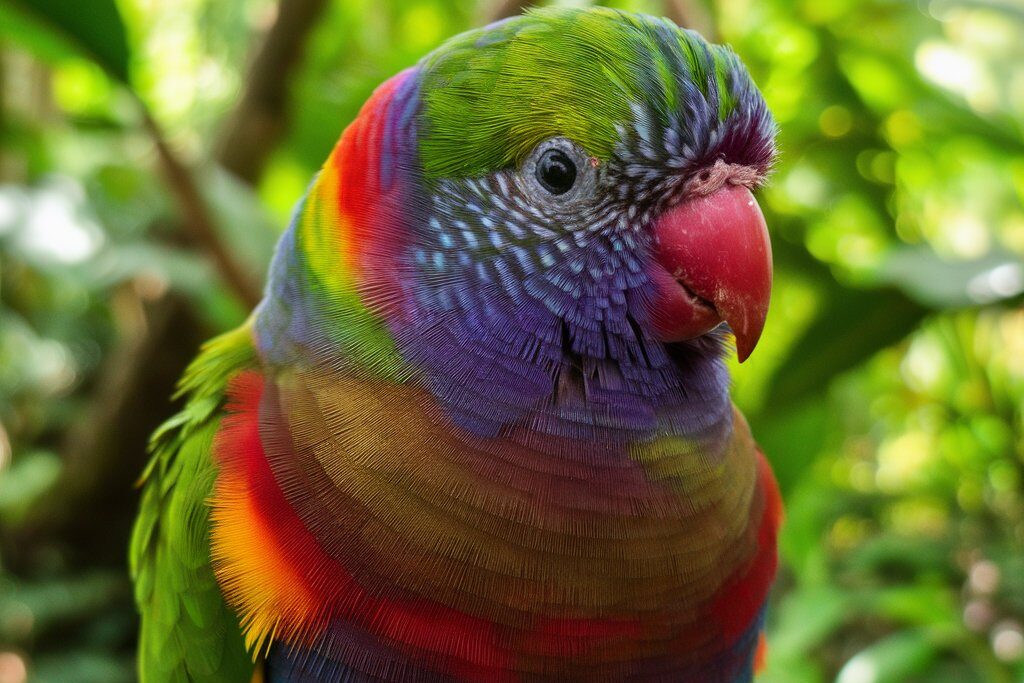
A balanced diet is essential for your pet bird’s health and well-being. However, achieving balance involves more than just providing the right types of food—it also requires variety and moderation. By incorporating a diverse range of foods and controlling portion sizes, you can ensure your bird receives the necessary nutrients while avoiding potential health issues. This article explores the importance of variety and moderation in bird nutrition and provides practical tips for maintaining a well-balanced diet.
The Importance of Variety
1. Ensures Nutritional Completeness
Birds, like humans, need a range of nutrients to stay healthy. Different foods provide different essential vitamins, minerals, and other nutrients. A varied diet helps ensure that your bird receives all the necessary nutrients for optimal health.
- Nutritional Diversity: Including a variety of foods helps cover all nutritional bases, reducing the risk of deficiencies.
2. Prevents Nutritional Imbalance
Feeding your bird a single type of food, such as only pellets or seeds, can lead to nutritional imbalances. Each food type has its own nutritional profile, and relying on one source can result in missing out on important nutrients.
- Balanced Nutrition: A varied diet helps prevent imbalances and deficiencies by incorporating different food sources.
3. Encourages Healthy Eating Habits
Introducing different types of food can make mealtime more engaging and stimulating for your bird. It encourages exploration and experimentation with different textures and flavors.
- Engaging Diet: A varied diet keeps mealtime interesting and can encourage better eating habits.
4. Reduces the Risk of Boredom
Just like humans, birds can become bored with repetitive diets. Variety in their meals helps keep them interested in their food and can prevent issues related to boredom, such as overeating or selective eating.
- Dietary Interest: Offering a range of foods helps keep your bird interested and prevents boredom-related issues.
The Role of Moderation
1. Prevents Overeating and Obesity
Moderation in portion sizes is crucial for preventing overeating and obesity. Even healthy foods can contribute to weight gain if given in excess. Proper portion control helps maintain a healthy weight.
- Weight Management: Control portion sizes to avoid overeating and manage your bird’s weight effectively.
2. Avoids Nutrient Overload
Too much of even a good thing can be harmful. Excessive intake of certain nutrients, such as fats or vitamins, can lead to health issues. Moderation ensures that your bird gets a balanced amount of each nutrient.
- Nutrient Balance: Avoiding excessive quantities of any single nutrient helps maintain overall health and prevents imbalances.
3. Supports Digestive Health
Moderation in the quantity of food helps prevent digestive problems. Overfeeding can lead to gastrointestinal issues, while appropriate portion sizes support healthy digestion and nutrient absorption.
- Digestive Health: Balanced portions aid in maintaining a healthy digestive system.
4. Encourages Optimal Nutrient Utilization
Moderate feeding helps your bird make the most of the nutrients in their diet. By avoiding large quantities of any single food, your bird’s body can more effectively utilize the nutrients it receives.
- Nutrient Utilization: Proper portion sizes ensure efficient nutrient absorption and utilization.
Practical Tips for Achieving Variety and Moderation
1. Offer a Diverse Menu
Include a variety of foods in your bird’s diet, such as pellets, fresh fruits, vegetables, seeds, nuts, and grains. Rotate different types of food regularly to provide a wide range of nutrients.
- Food Diversity: Incorporate various food types to meet your bird’s nutritional needs.
2. Control Portion Sizes
Monitor and control portion sizes to avoid overfeeding. Follow guidelines provided by avian nutrition experts or veterinarians for recommended amounts of each food type.
- Portion Control: Adhere to feeding guidelines to maintain balanced portions.
3. Introduce New Foods Gradually
When introducing new foods, do so gradually to allow your bird to adjust. This also helps prevent digestive upset and allows you to monitor your bird’s reaction to the new food.
- Gradual Introduction: Slowly introduce new foods to ensure a smooth transition.
4. Monitor Your Bird’s Weight and Health
Regularly check your bird’s weight and overall health to ensure that their diet is balanced and meeting their needs. Adjust portions and food variety as necessary based on their health and activity levels.
- Health Monitoring: Keep track of your bird’s weight and health to make necessary dietary adjustments.
5. Consult with a Veterinarian
Consult with an avian veterinarian for personalized dietary recommendations based on your bird’s species, age, health status, and activity level. A professional can provide valuable guidance on achieving the right balance of variety and moderation.
- Veterinary Guidance: Seek advice from a veterinarian to tailor the diet to your bird’s specific needs.

